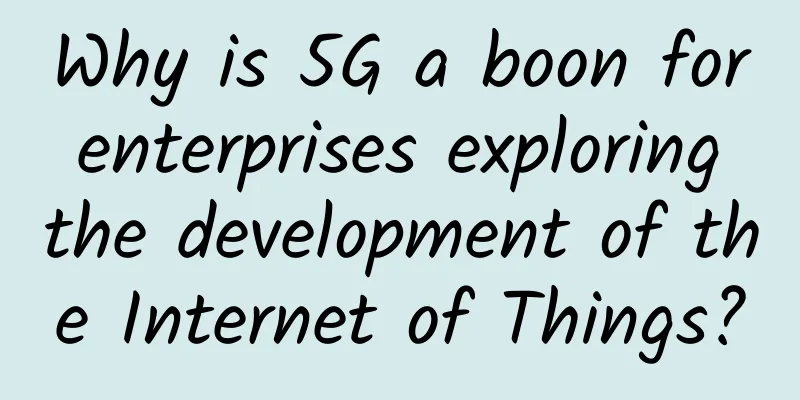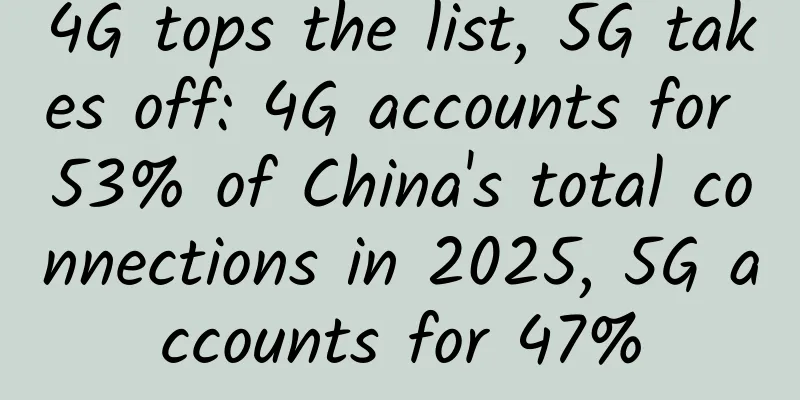How will the cancellation of data "roaming" fees, which has aroused nationwide praise, trigger a "butterfly effect"?

|
At the first session of the 13th National People's Congress, Premier Li Keqiang proposed in his government work report that data "roaming" fees will be abolished this year, and mobile network data charges will be reduced by at least 30% within the year. Because of this policy, Premier Li Keqiang's speech was interrupted by warm applause at the scene. In fact, since March, operators have taken some actions that can be regarded as a precursor to this policy. China Unicom began to upgrade the traffic of Tencent King Card to national traffic on March 2, and China Mobile also upgraded the original national traffic package in some areas. Data "roaming" fees are about to be eliminated. Although it seems to be a very small part of the communications industry, it involves almost all the people. At the same time, as part of "speeding up and reducing fees", it will also have a profound impact on operators and all walks of life that survive on the Internet. The "butterfly effect" is bigger than you think. Is local data traffic actually “discounted” data traffic? How much of the “roaming” discount will be cancelled? At present, in terms of traffic, most of the 4G packages of the three major operators still distinguish between local traffic, provincial traffic, and national traffic. For some people who often need to travel, "national traffic is used up at the beginning of the month, and local traffic is not used up at all" has become a common reality. Even some novice users do not know that there are these distinctions in the traffic in their packages. Taking the upgraded version of the 4G Easy Card package on China Mobile's official website as an example, the package provides 300MB of intra-provincial traffic every day, and the intra-provincial traffic outside the package is charged at 1 yuan per day for 300MB (less than 1 yuan is charged at 0.29 yuan/MB); inter-provincial traffic is charged at 0.29 yuan/MB, and enjoys the 4G+ automatic refueling discount (up to 10 yuan per 100MB and 30 yuan per 1GB). There is a clear difference in the price of intra-provincial and inter-provincial traffic. In addition, there is a big gap in the prices of national traffic and provincial traffic on some commonly used third-party traffic recharge channels such as Alipay. Industry insiders pointed out that when 3G/4G was first launched, the standard packages of operators were unified nationwide, with the same price, but this was not "fair". For example, in Beijing, Shanghai and Guangzhou, where the economy is good and the income is high, they can accept more expensive packages, but in the less developed central and western regions, this is not the case. At the same time, operators are managed in different levels. The branch companies in each province (municipalities/autonomous regions) under the head office of the group will prioritize their own products and policies according to the specific conditions of each region, especially the preferential services with local characteristics. As a result, there are 3G and 4G national packages (data traffic is available nationwide), provincial packages (discounted data traffic can only be used within the province), and city packages (discounted data traffic can only be used in the city). As for why there is "roaming" traffic, an informed staff member of China Mobile previously explained that: network resources are uneven in different places, and traffic consumption also varies. Provinces with lower traffic consumption may give away surplus local traffic to consumers or sell it to consumers at a low price, which creates local traffic and national traffic. Communications industry expert Xiang Ligang also told Sohu Technology that local traffic is actually a preferential price. After the cancellation of the traffic "roaming fee", the specific charges for national traffic will need to wait for the operator's policy to be released. However, the Prime Minister also mentioned that mobile network data charges will be reduced by at least 30% within the year, which is more in line with the current mood of the people who want more favorable and cost-effective Internet access, and will also effectively curb charges. This policy goal was immediately praised by netizens, and some netizens said it was "the best news I heard today." Operators have stated that they will "take immediate action", but there is no specific timetable or action plan. After the Premier’s work report was put forward, the Ministry of Industry and Information Technology and the three major operators all expressed that they would "resolutely implement the national policy requirements of "speeding up and reducing fees", take immediate action and go all out to ensure that relevant measures are fully implemented as soon as possible." Miao Wei, Minister of Industry and Information Technology, said that we have recently conducted some surveys, through which we found that the majority of mobile phone users have strong opinions on the billing method of distinguishing between local and national mobile data traffic. So the Premier proposed in his work report just now that mobile data "roaming" fees should be canceled this year, and there will be other measures to reduce fees and increase speed. This is a people-friendly measure and also responds to the urgent concerns of the majority of users about the original billing method. In addition, China Telecom stated that the group is determined to implement the national policy requirements of "speeding up and reducing fees" and will take immediate action and go all out to ensure that relevant measures are fully implemented as soon as possible. China Telecom said that speeding up and reducing fees will increase corporate competitiveness and reduce total social costs. China Telecom will further accelerate the transformation and upgrading of enterprises, accelerate supply-side structural reforms, help build a digital China, and provide consumers with more useful, affordable, and good smart information services, and strive to "build a strong network country, create first-class enterprises, and build a better life together"! China Mobile said that it will resolutely implement the requirements of this year's government work report to increase network speed and reduce fees, go all out to promote the full coverage of high-speed broadband in urban and rural areas, significantly reduce the use fees of home broadband, enterprise broadband and dedicated lines, cancel the "roaming" fee for traffic, and reduce mobile network traffic charges by at least 30% within the year, promote the development of "Internet +", and promote "mass entrepreneurship and innovation". While promoting network speed and fee reduction, it will earnestly provide customer service, strengthen product and business innovation, reduce customer communication consumption costs with practical actions, promote small profits but quick turnover, benefit customers and enterprises, and create greater value for customers, enterprises and society. China Unicom said that it will resolutely implement the national policy requirements and work arrangements for speed increase and fee reduction, actively take corresponding measures, and make speed increase and fee reduction a key task to promote it with all its strength. In 2018, the company will continue to implement the strategy of focusing on innovative cooperation, strive to promote Internet-based operations, build a "Five New" Unicom, vigorously promote in-depth cooperation and coordination with strategic investors, build a high-quality network, innovate marketing models, and reduce tariffs, so that hundreds of millions of users can share the fruits of industry development with tangible corporate actions. However, the three major operators have not yet given a specific timetable, and the specific fee reduction plan is yet to be launched. Speaking of "roaming", on September 1 last year, China Mobile, China Unicom and China Telecom, the three major operators, completely cancelled domestic long-distance and roaming charges for mobile phones as required, which was well received at the time. However, in terms of the impact on people's expenses and the impact on the development of the industry, the fee reduction at that time cannot be compared with the cancellation of data "roaming" fees, because the main expenditure of users has now changed from the original call charges to data charges, which is why many users are eager to implement the policy as soon as possible. Technology is the key behind "speeding up and reducing fees", and the 5G era will further reduce fees In fact, since 2016, the main source of revenue for the three major operators has become traffic revenue, which is why more industry insiders feel that the cancellation of traffic "roaming" will put some pressure on the revenue of the three major operators. Some industry insiders pointed out that domestic tariffs are actually relatively low, and the cost of operators to build and maintain networks is quite high. The policy proposed at this time will further test the three major operators. According to the 2017 interim report released by China Mobile, wireless Internet revenue reached RMB 187.7 billion, accounting for more than 50% of communication service revenue (communication service revenue was RMB 348 billion, an increase of 6.9%). With the cancellation of long-distance and roaming charges in the second half of 2017, this proportion will continue to rise. However, increasing speed and reducing fees is an inevitable trend. According to data from the Ministry of Industry and Information Technology, the average mobile Internet traffic fee dropped to 26 yuan/GB in 2017. If we refer to the latest package fees, the lowest traffic fee is as low as 1-2 yuan/GB. According to last year's data, in March last year, the three major operators announced the results of their speed increase and fee reduction. Regarding mobile traffic, China Mobile said that the price of mobile Internet traffic has dropped by more than 60% since 2015. China Telecom said that in the past two years, China Telecom's mobile traffic fees have dropped by 57.4%. China Unicom said that China Unicom's average traffic tariff level in 2016 dropped to a new low, a drop of more than 48% compared to the end of 2015. In 2017, it innovatively launched the 4G Ice Cream National Integration Package, which greatly reduced the overall household communication expenses. In addition, if we look back at the years of “speeding up and reducing fees”, it was the years when my country’s Internet flourished, and the huge drop in unit traffic prices was changing users’ usage habits. Last year, Miao Wei, Minister of Industry and Information Technology, mentioned an obvious change: while fees were reduced, user usage also increased exponentially. The current average monthly traffic has grown from 300M three years ago to more than 1.8G. This means that when data charges are high, users will use data less frequently, but as charges decrease, users will be more willing to spend data to surf the Internet, or even listen to music or watch videos. This change in usage habits has also led to changes in netizens' Internet habits, from the popular 120-character microblogs to the popular "short videos" today, all of which are actually driven by the invisible push of "speeding up and reducing fees." In fact, the key behind "speeding up and reducing fees" lies in the iteration and development of technology. Only sufficient network speed and technology can support users' demand for more data usage. The rapid development of China's Internet industry in the 4G era has become an important proof. With the reduction of fees and the increase of network speed, users' habits of using data will also change, and more and richer Internet products will have a better development environment. As for operators, based on past data, as user traffic usage increases, operators' revenue has not been overly affected by the reduction in tariff unit prices. More importantly, "speeding up and reducing fees" will create a more favorable environment for the development of the Internet, give birth to more complete network scenarios, and promote the healthy development of related Internet industries. At the same time, the current 30% fee reduction is only for the current situation. With the arrival of 5G in the future, the fees will need to be reduced exponentially. "In the 5G era, it may even drop to 0.1 cent/GB." |
>>: What impact will the cancellation of data roaming have on telecom operators?
Recommend
Which bare metal cloud service provider is the best? Huawei Cloud is happy
[51CTO.com original article] A few years ago, whe...
How to open a 5G automatic account? Let’s follow Brother K to find out!
The recent projects are not very busy, so Brother...
When you "ping", do you know the logic behind it?
[[262430]] When we encounter a network outage, we...
Let’s talk about how IP addresses are allocated?
In the IPV4 era, IP addresses are a scarce resour...
OneTechCloud: 20% off on all VPS, Hong Kong CN2, Japan CN2, US CN2 GIA, high-security VPS, native IP
OneTechCloud (Yikeyun) offers a minimum 20% disco...
What are the main reasons why enterprises turn to fiber optic networks?
The invention of fiber optic cables has revolutio...
The number of 5G package users far exceeds the number of 5G mobile phone users. Are you infected by 5G?
If we distinguish by telecommunications scale, th...
Detailed Explanation of WiFi Wireless Network Technology
Introduction to Wireless Networks Wi-Fi is a tech...
LAN vs. WLAN: Connecting the Wired and Wireless Worlds
Local Area Networks (LAN) and Wide Area Networks ...
Hostodo: $24.99/year-2GB/20G NVMe/5TB/Las Vegas, Spokane, and Miami data centers
Hostodo has launched a February Special Deal prom...
Huawei CEO Ding Yun: Lighting up the future and releasing new value of connectivity
[Shenzhen, China, February 8, 2020] Today, at the...
Smart Manufacturing: Ensuring a Smart Future for Manufacturing
Smart manufacturing has the potential to improve ...
[11.11] HostingViet: Vietnam VPS annual payment 40% off, 2GB/20G SSD/unlimited traffic/annual payment starting from 193 yuan
HostingViet also launched a Double 11 event. From...
After the number portability function is enabled, the largest number of users transfer out of China Mobile
Number portability was officially launched nation...
A brief analysis of the integration solution of Hyperscan in nDPI
Labs Guide Hyperscan is a high-performance regula...









